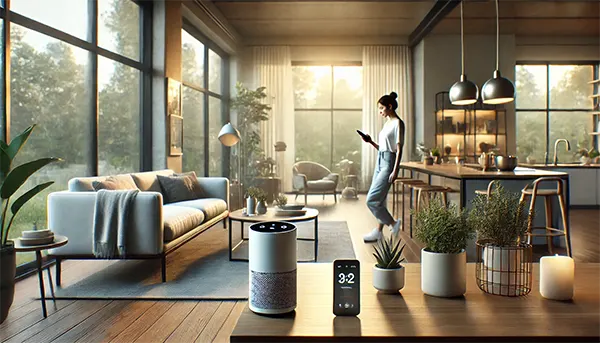
The Role of Chatbots in Enhancing Customer Service and Marketing in 2025
In 2025, businesses worldwide are leveraging cutting-edge technologies to optimise customer engagement and streamline marketing efforts. Among these technologies, chatbots stand out as a game-changer, reshaping how companies interact with their audiences. This article explores the evolving role of chatbots in customer service and marketing, providing actionable insights for businesses looking to stay ahead in the digital era.
The Evolution of Chatbots in Customer Service
Chatbots have revolutionised customer service by providing instant support and seamless interactions. Over the past decade, advancements in artificial intelligence (AI) have transformed chatbots from basic response tools into sophisticated conversational agents capable of understanding and resolving complex customer queries. This evolution continues to accelerate in 2025, with businesses adopting AI-driven bots to enhance user experiences and build customer loyalty.
One of the key reasons chatbots are so effective in customer service is their ability to adapt to user needs. Through machine learning, they can continuously improve their responses and provide accurate information faster than ever before. Moreover, chatbots can be programmed to handle specific customer preferences, ensuring a personalised approach that traditional customer service channels often lack. This makes them invaluable for handling high volumes of queries efficiently without compromising on quality.
Another significant advantage of chatbots is their multilingual capabilities. In a globalised world, businesses often face challenges in catering to diverse linguistic groups. AI-powered chatbots can seamlessly switch between languages, enabling businesses to serve international customers without the need for human translators. This not only improves accessibility but also fosters a sense of inclusivity among customers.
Key Benefits of Chatbots for Customer Service
Firstly, chatbots offer unparalleled accessibility, providing 24/7 support without the need for human intervention. This ensures that customers receive immediate assistance regardless of time zones or business hours. Secondly, advanced chatbots utilise natural language processing (NLP) to understand customer emotions and intents, enabling personalised interactions that foster trust and satisfaction. Lastly, by automating routine tasks, chatbots free up human agents to focus on complex issues, improving overall service efficiency and quality.
In addition, chatbots are highly scalable, making them suitable for businesses of all sizes. Whether a company receives a few customer inquiries or thousands, chatbots can manage the workload without requiring additional resources. This scalability helps businesses manage operational costs effectively while maintaining high service standards.
Chatbots as a Marketing Powerhouse
In addition to customer service, chatbots have emerged as a powerful tool for digital marketing. By seamlessly integrating with platforms such as social media, email, and websites, chatbots enable businesses to engage with their audiences in a highly personalised manner. This capability is particularly valuable in 2025, as consumers increasingly demand tailored experiences that cater to their individual needs and preferences.
Chatbots can also act as brand ambassadors, engaging users in creative and interactive ways. For instance, many businesses use chatbots to host virtual events, run promotional campaigns, or provide exclusive updates to their loyal customers. These activities not only enhance customer engagement but also reinforce brand loyalty. Additionally, chatbots can gather valuable customer data during interactions, enabling marketers to refine their strategies and target audiences more effectively.
Another vital aspect of chatbot marketing is their ability to deliver consistent messaging. Unlike human representatives who may vary in tone or approach, chatbots ensure uniformity across all interactions, maintaining the brand’s voice and personality. This consistency helps build trust and strengthens the overall marketing effort.
How Chatbots Drive Marketing Success
One significant advantage of chatbots in marketing is their ability to generate and nurture leads. Chatbots can initiate conversations with website visitors, collect essential information, and guide them through the sales funnel. Furthermore, they excel at delivering personalised recommendations based on user behaviour and preferences, increasing conversion rates. Another critical function is facilitating interactive marketing campaigns, such as quizzes or polls, which boost engagement and brand awareness.
Additionally, chatbots contribute to customer retention by offering loyalty programs, personalised discounts, and timely reminders for upcoming offers. These automated systems ensure that customers remain engaged with the brand, which ultimately enhances long-term customer relationships. The ability of chatbots to instantly resolve queries also contributes to a more positive customer experience, further solidifying their role as indispensable marketing tools.

The Future of Chatbots: Trends for 2025 and Beyond
As we progress into 2025, several trends are shaping the future of chatbot technology. One notable trend is the integration of AI and machine learning to create bots that learn and adapt over time. This capability enhances their effectiveness and ensures continuous improvement in customer interactions. Additionally, businesses are increasingly combining chatbots with voice recognition technologies, enabling hands-free, conversational experiences.
Another emerging trend is the use of augmented reality (AR) and virtual reality (VR) with chatbots. These technologies open up new possibilities for customer interaction, such as virtual tours of properties or immersive product demonstrations. This not only enhances user engagement but also sets businesses apart in highly competitive markets. Moreover, the integration of AR and VR allows chatbots to bridge the gap between digital and physical customer experiences.
The focus on data privacy and security is also intensifying. As chatbots handle sensitive customer information, businesses are prioritising the implementation of robust security measures. In 2025, the emphasis on transparency in how data is collected and utilised will become a critical factor for maintaining customer trust.
Preparing for the Next Wave of Chatbot Innovations
To capitalise on these trends, companies must invest in robust chatbot platforms that prioritise security and scalability. Businesses should also focus on aligning chatbot functionalities with their brand voice and customer expectations, ensuring a seamless and authentic user experience. By doing so, they can position themselves as leaders in customer-centric innovation.
Finally, organisations should continually monitor advancements in chatbot technology to stay ahead of the competition. Collaborating with AI experts and investing in employee training programs to optimise chatbot management will be essential for sustaining success. By embracing innovation and maintaining a customer-first approach, businesses can unlock the full potential of chatbots in 2025 and beyond.




